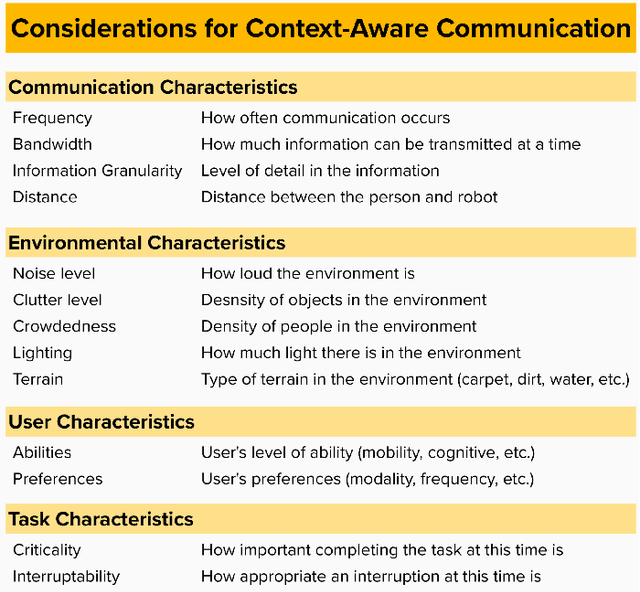Sachiko Matsumoto
Shared Control in Human Robot Teaming: Toward Context-Aware Communication
Mar 19, 2022

Abstract:In the field of Human-Robot Interaction (HRI), many researchers study shared control systems. Shared control is when a person and agent both contribute to the performance of a task in a collaborative way, often by providing control inputs for a robot. One of the most important things in shared control is the nature of the communication between the person and robot, which could help the human-robot team handle a variety of challenging situations. In this paper, we identify key challenges in shared control, in which better communication design could be useful, including when encountering novel situations and contexts, resolving tensions between preferences and performance, and alleviating cognitive burden and interruptions. Through the use of four exemplar shared control scenarios, we explore how well-designed human-robot communication strategies could help address each challenge. We hope this paper will draw attention to these challenges and assist researchers in advancing the development of shared control systems.
 Add to Chrome
Add to Chrome Add to Firefox
Add to Firefox Add to Edge
Add to Edge